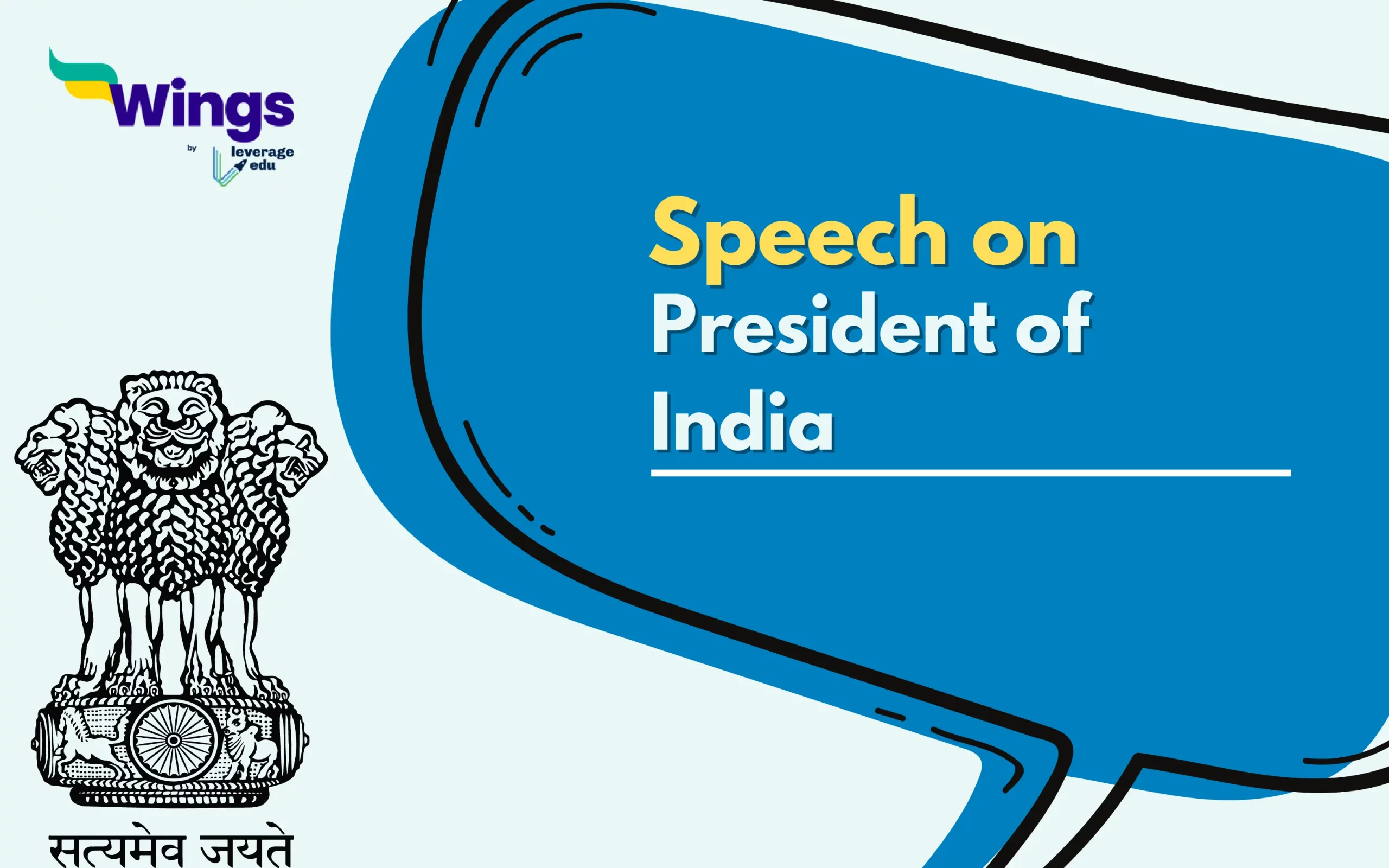Speech on President of India: President: The President of India is the ceremonial head of state of the Republic and the leader of India. The President is the nominal head of the executive and the first citizen of the country. Currently, Draupadi Murmu, an Indian politician and former teacher, serves as the 15th President of India. It is a matter of prestige that she is the first person from a tribal community to hold this respectable position in the nation. Additionally, Hon’ble President Droupadi Murmu is the second woman to hold the office of president after Mrs. Pratibha Patil.
Also Read: Essay on Rajendra Prasad in 100, 200, and 500 Words in English for Students
2-Minute Speech on President of India
Hello everyone. Today I am excited to talk about an important position of our country who serves as the constitutional head of India. They are none other than the President of India, who serves the responsibilities just like a captain of a ship.
The President of India is acknowledged as India’s first citizen and constitutional head. As per Article 74(1) of the Constitution, the Prime Minister, headed by the Council of Ministers serves to advise the President of India. The collaboration of the leaders of Independent India helps in the smooth functioning of the government.
The President of India plays an important role in the country’s governance. In terms of domestic powers, The President of India bears the responsibility to appoint the Prime Minister, and on the advice of the Prime Minister, appoints the other members of the Council of Ministers. Moreover, they have the authority to dissolve the lower house of the country and can call for general elections. With all these ceremonial powers, The President of India plays an important role in the parliamentary democracy of India.
On one hand, The President bears important responsibilities so on the other hand they also face challenges where they have to handle the balance between the executive and legislative balance of the country. Upholding the principles of the Constitution and returning the bill for reconsideration are some of the challenges that need to be struck as per the discretionary power of the President.
Apart from the responsibilities, The President of India holds essential power in the nation´s governance. As executive authority they can approve important decisions for the welfare of the nation, as legislative powers President can give permission to grant bills, and as judicial responsibilities can grant pardons to Section 354(4) of the Criminal Code of Procedure (CRPC).
Moreover, maintaining politically neutral policies of the country with challenging diversity, and responding to emergencies needs careful consideration of the President of India. In summary, we can say that with vast powers and complex responsibilities, they are not only required to make decisions considerably but also with responsibility.
Also Read: Essay on Farmer for School Students: 100, 200, and 300 Words
10 Lines on Speech on President of India
1. The president of India is acknowledged as the first citizen and constitutional head of India.
2. They bear the responsibility to appoint the Prime Minister, and on the advice of the Prime Minister, appoint the other members of the Council of Ministers.
3. President is the authority body to dissolve the lower house of the country.
4. They can appoint the members of the Council of Ministers.
5. As an executive authority President can approve important decisions for the welfare of the nation.
6. The power of legislative powers of the President permit the granting of bills.
7. The president can permit granting of bills, and as judicial responsibilities can grant pardons to Section 354(4) of the Criminal Code of Procedure.
8. Maintaining politically neutral policies of a country with challenging diversity is one of the major responsibilities of the President.
9. The President needs to balance the politically neutral policies of the country with challenging diversity.
10. The president of India possesses vast powers as well as the complex responsibilities of the country.
FAQs
The President of India holds the executive, legislative power and judiciary responsibility of the country.
The important points of the President of India include that the President is acknowledged as the first citizen and constitutional head of India. They bear the responsibility to appoint the Prime Minister, and on the advice of the Prime Minister, appoint the other members of the Council of Ministers and the President is the authority body to dissolve the lower house of the country.
The powers of the President of India are divided into executive, legislative, judiciary, military and discretionary powers. Apart from the discretionary powers, the President of India takes action on the advice of the Council of Ministers.
Prathibha Devisingh Patel was the first female President of the Republic of India, who served from 2007 to 2012.
Related Blogs
For more information on such interesting speech topics for your school, visit our speech writing page and follow Leverage Edu.


 One app for all your study abroad needs
One app for all your study abroad needs












 60,000+ students trusted us with their dreams. Take the first step today!
60,000+ students trusted us with their dreams. Take the first step today!